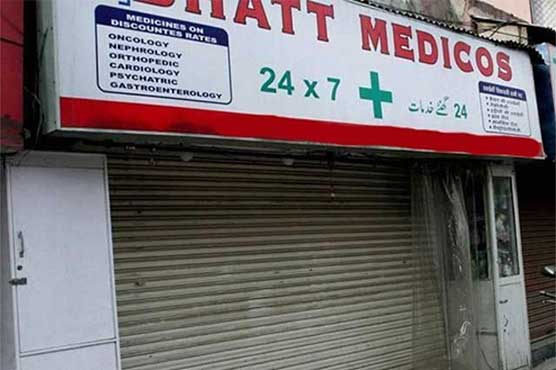Karachi, September 8 (The Express Tribune): Pakistan has decided to lift the ban on the import and export of life-saving medicines from India, despite the recent escalation of tensions over Kashmir.
According to the details provided by the Ministry of Commerce, the decision was taken on humanitarian grounds to prevent the shortage of essential medicines in both countries.
Last month, Islamabad downgraded its trade and diplomatic ties with New Delhi in retaliation against the former’s decision to deprive occupied Kashmir of its special status.
Currently, Pakistan imports 820 chemicals for medical use. It relies on India for 60 such chemicals. Of those 23 are used in life-saving medicines to treat blood pressure, cancer, heart diseases, Tuberculosis, and diabetes.
Earlier this week, a notification by the ministry was issued to amend the import policy order 2016. The document stated that the ban would not apply to therapeutic products regulated by the Drug Regulatory Authority of Pakistan.
Prices of several medicines increased due to the government’s decision to ban Indian origin imports last month. The ban could have caused a shortage of life-saving drugs in the country as the pharmaceutical industry imports up to 50 percent of the raw material from India to produce medicines.
Doctors, pharmacists, and medical petitioners have praised the government’s decision to restore the trade of medical supplies between the two countries.
According to the pharmaceutical industry, the ban stoked fears of a shortage of several life-saving medicines in the market.
To address the issue, representatives of the pharmaceutical industry met the Federal Health Minister, Dr. Zafar Mirza, earlier this month.
According to the pharmaceutical industry, importing raw material from any country other than India would add to the production cost that the consumers will have to bear.
Following the abolition of Art 370 by India which gave autonomy to Jammu and Kashmir, there has been a total lockdown in that Muslim-majority State. Pakistan withdrew its top diplomat and announced that it would not send its high commissioner-designate to New Delhi.
The two countries have been at odds since India divided the occupied territory into two centrally administered “union units” and took away powers from the state’s assembly.




























































